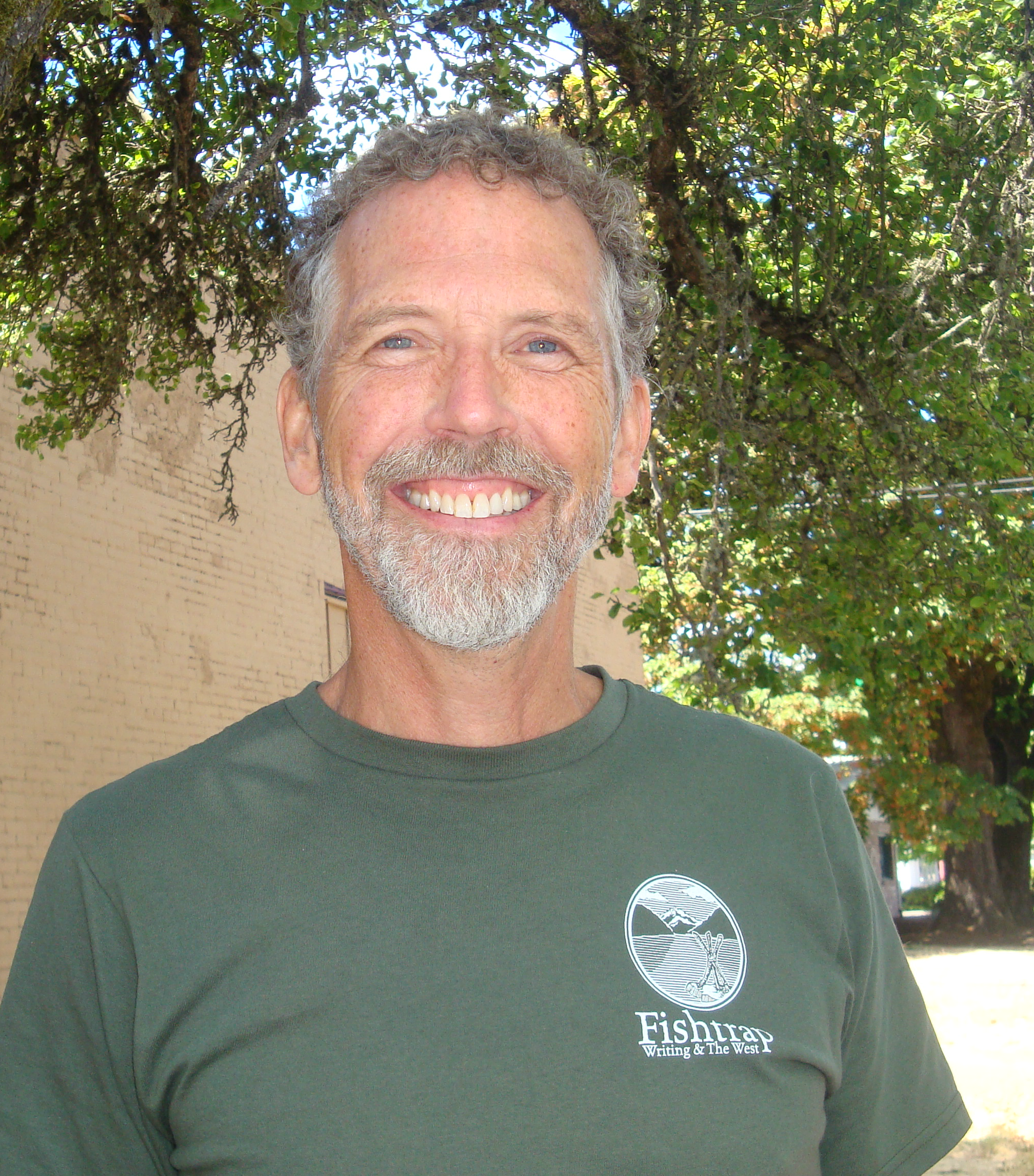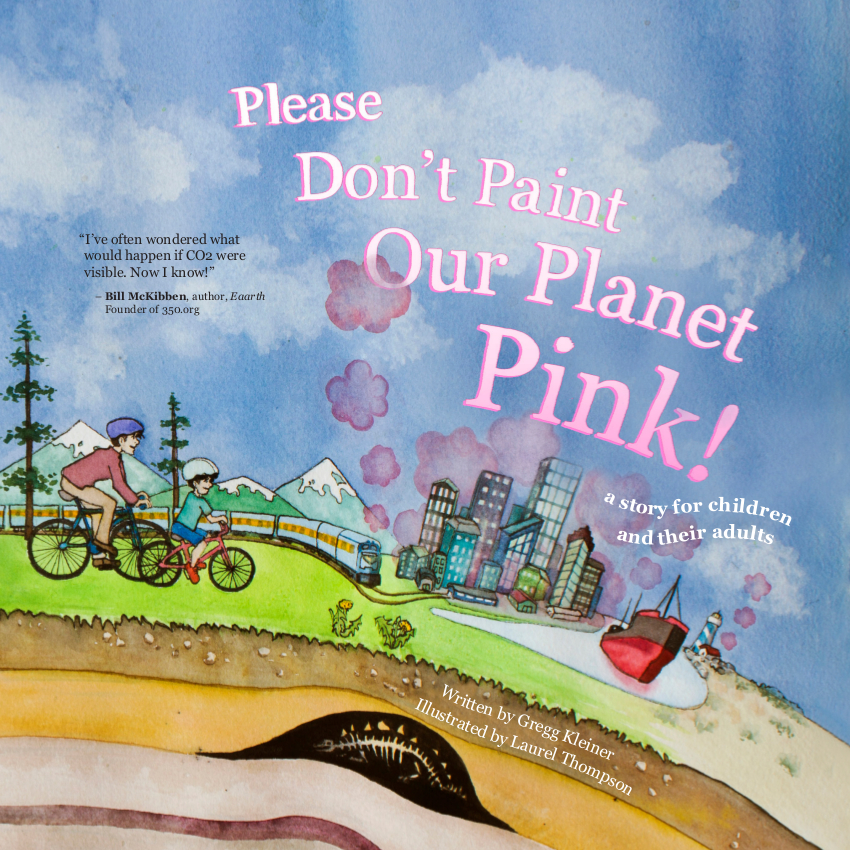 CONTACT: info@cloudburstcreative.com
CONTACT: info@cloudburstcreative.com
WEBSITE: www.cloudburstcreative.com
OWNER: Gregg Kleiner
YEARS IN BUSINESS: 8
NUMBER OF EMPLOYEES: 1
WHAT HE SELLS: Compelling communications – from children’s books and website copy to news releases, annual reports, birth announcements, and just about anything that needs a good story
WHY YOU SHOULD GO: To find expert help communicating to others what’s important to you, whether it’s related to your work, volunteer efforts, or personal life
Within the field of written communications, Gregg Kleiner has worn many hats – as a journalist, technical writer, business owner, novelist, and author of a newly published children’s book about climate change. What ties his work together is a passion for storytelling, for making communications of all types come alive. Coupled with a commitment to tackling challenging subjects such as aging and climate change with compassion and good humor, Gregg’s efforts have resulted in a broad array of engaging communications.
Gregg, when and why did you decide to start your business? By the time I started Cloudburst Creative about eight years ago, I had been in the communications and journalism field for many years. After receiving a degree in journalism and German literature from the U of O, I did some work in journalism, and then I joined Grapevine Publication in Corvallis in 1984. Two of my high school friends owned the company. One of them was a former HP employee who saw a need for more user-friendly owner’s manuals for HP’s hand held calculators. That’s how Grapevine Publication got started. They modeled the new manuals after a popular guide (How to Keep Your Volkswagen Alive: A Guide for the Compleat Idiot) that used illustrations, hand-lettering, and cartoons to make technical instructions easier to understand. They needed a communications and marketing person to help promote the business, so that’s where I came in. We each earned about $500 a month. I lived very simply during those years.
In about 1986, one of the owners and I spun off another company to focus on technical writing. This company was called Terra Pacific Writing Corporation. We started out doing technical writing for HP, Sharp, Microsoft, and a lot of smaller companies. We were writing the owner’s manuals for their products, and, since their products were sold around the world, we got into translating the manuals and software into other languages. We eventually had about 20 employees and some 50 contractors. Our employees were great – we had so much fun! I was with that company for about six years.
I left the company because I wanted to finish writing a novel I’d been working on. Where River Turns to Sky was published by Harper Collins, and it was a finalist for the Oregon Book Award and the Paterson Fiction Prize. The book, which tells the story of a bunch of elders living out their late years together in a big house in a small Oregon town, was optioned for years by Fox Searchlight, which wanted to make it into a feature film, but nothing ever came of it. Fortunately, the book is still in print. The spark for the novel came from my experience as an exchange student in Thailand when I was 16. I saw how differently the elders in that culture were treated than they are here, and I wanted to address that subject through story.

After the novel came out, I started freelancing in communications. Except for a stint as Director of Marketing and Communications for OSU’s College of Engineering from 2002 to 2006, I’ve been freelancing under the name Cloudburst Creative. The children’s book that I published last winter is called Please Don’t Paint Our Planet Pink! A Story About Climate Change for Kids and Their Adults. The book came about because I wanted to do something to impact climate change. One day our kids are going to ask us, “What were you all doing back when you all knew climate change was coming?” So I asked myself, “What can I do, as a writer, to help people see what’s causing climate change?” The book asks, what might happen if carbon dioxide were pink? I decided to focus on kids because they’re going to inherit this altered climate. I also wanted to find a way to address the topic without scaring people or overwhelming them with climate science facts. After sending the book to a number of publishers, I decided to publish it myself. I knew local artist Laurel Thompson through the Corvallis homeschooling network (we had homeschooled our son and daughter), and I heard that she had always wanted to illustrate a children’s book. It was really fun collaborating with Laurel on the book. Her watercolor illustrations are beautiful!
I’ve spent the past six months promoting the book, primarily through climate change organizations, science education groups, parent organizations and social media. The age range for the book’s readers is generally 6 to 11 years old, although it appeals to older kids and adults, as well. I had a 13 year-old from Ireland who loved the book so much that he and his mom sent me a video of the two of them talking about the book. The book has sold better in Europe than in the US because I think Europeans accept climate change, and they’re taking action to address it. A publisher in Slovenia contacted me about the book, and a friend in Denmark is trying to have it translated into Danish.
Tell us more about your communications services. I do written communications of all kinds – brochures, annual reports, news releases, marketing, media relations, and website copy.
What does being featured as the Local Business of the Week mean to you? I’m very grateful for what the Sustainability Coalition brings to this community in so many different ways, including highlighting small businesses like mine.
What challenges have you faced as an independent local business owner, and how have you met those challenges? Related to publishing, the greatest challenge has been getting the word out in a world that’s awash with information. People are overwhelmed with information. Cutting through the noise of social media is challenging. I’m in a business that’s all about reading, and I’m concerned that younger people aren’t reading as much anymore. At the end of the day, communications is all about storytelling and how we can use storytelling to change the world. No one can resist a well-told story. We’ve been listening to stories for millennia; it’s in our genes.
What do you feel is the impact of local independent businesses on Corvallis, and what does the future look like for the local independents? Small businesses are the vital fabric of any community, and I’m encouraged about the future of local independent businesses in Corvallis. Look at Grassroots, which outlasted Borders, and Robnett’s Hardware, which survived in spite of Home Depot. I’m concerned that if everyone orders products on-line, we’ll miss the human connections that come from dealing with local businesses. Service is key – you can’t replace the personal service that local independents offer.
What do you enjoy most about owning a local, independent business in Corvallis? What keeps you going? I enjoy the freedom and flexibility of owning my own business. The down side is the lack of benefits – there’s no paid vacation or health benefits. What keeps me going is that I have hope in the goodness of humanity. You see it surface after a disaster like an earthquake, people helping each other. I want to help foster that basic goodness that all humans possess deep down, because there is great potential there. If we can find what connects us, instead of what separates us, we can do amazing things. We were all kids once, right? We all love our kids, our friends, and we want to be loved. So let’s start there, tap that and honor that in one another, instead of standing on opposite ends of the political spectrum and throwing stones. Can we get beyond personal greed and do what’s good for all of us and the planet?
What is your relationship to the community? What organizations do you support or participate in? I’ve served on the boards of First Alternative Co-op and the Corvallis Waldorf School. I’m currently involved with 350.org Corvallis, and I’ve served on the steering committee of The Magic Barrel: A Reading to Fight Hunger for many years.
How important is sustainability to you and/or your business? Have you taken steps to save energy, reduce your use of other resources, decrease your carbon footprint, or reduce waste? Sustainability is really important to me. In addition to doing things like riding my bike and growing food, I try to take on projects that are aligned with my values – focused on sustainability and saving energy. I currently work on contract with Oregon BEST (Built Environment and Sustainable Technologies Center). They’re working on all kinds of amazing innovations that involve clean technology.
Please give us your one-sentence take-away message about your business. Sharing stories builds community, and that’s what Cloudburst Creative is all about.
(Interview and article by Annette Mills – July 19, 2015)
 The Local Business of the Week program is designed to help the Corvallis community identify our locally owned independent businesses by featuring one business each week. The program is part of the Buy Local First campaign co-sponsored by the Corvallis Sustainability Coalition and the Community Independent Business Alliance (CIBA).
The Local Business of the Week program is designed to help the Corvallis community identify our locally owned independent businesses by featuring one business each week. The program is part of the Buy Local First campaign co-sponsored by the Corvallis Sustainability Coalition and the Community Independent Business Alliance (CIBA).

